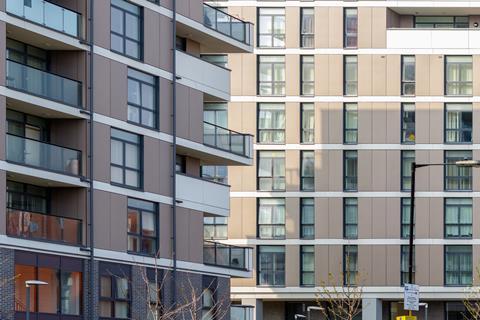Housing secretary says government must protect most vulnerable households but alarm is raised over £7bn hit to finances
The government has announced plans to limit the amount by which social landlords can raise rents to just 5% next year, despite double-digit cost inflation, in a move the sector has described as “very concerning”.
The government last night published a consultation on three options for limiting rent rises in the next financial year to increases of either 3%, 5% or 7% in order to help tenants hit by rising costs, with 5% chosen as its “draft” preferred level.

Without intervention by government, social housing landlords would be free to raise rents by as much as CPI inflation plus 1% - implying double-digit rises in housing costs for low-income tenants
The consultation follows serious concern over the issue since Housing Today revealed last week that the government was due to cap rents, given the affordable housing sector’s reliance on rental income to fund its investment in new and existing homes.
There are fears that the need to see tenants protected from rental increase could result in a big drop in development and other capital investment as housing associations rein in discretionary spend to shore up their financial position.
>> See also: What might a fair affordable rent settlement look like?
>> See also: Leading the pack: An interview with L&Q’s Fiona Fletcher-Smith
According to an impact assessment published alongside the consultation, limiting rents to 5% above inflation for the 2023/24 financial year could drain £6.9bn in rental income from the sector over the next five years.
The announcement comes just days after an analysis of costs for housing associations conducted by the CEBR for the National Housing Federation found that new-build cost inflation for homes was running at 12.3% in June, with repair and maintenance costs rising at 14% per annum.
The consultation said it recognised there were “tough choices” to be made about the levels at which rents were set. It said: “Imposing a ceiling on rent increases would […] leave registered providers with less money to invest in providing new social housing, improving the quality and energy performance of their existing homes and providing services to tenants. These are important outcomes to government as well as to Registered Providers, so any decision to restrict rent increases inevitably involves tough choices.

Housing secretary Greg Clark said: “We must protect the most vulnerable households in these exceptional circumstances during the year ahead. Putting a cap on rent increases for social tenants offers security and stability to families across England.
“We know many people are worried about the months ahead. We want to hear from landlords and social tenants on how we can make this work and support the people that need it most.”
The consultation proposes only making the change to the standard rent change of CPI plus 1% for the next financial year, but asks whether a further rent “ceiling” should be imposed for a later period. The Department for Levelling Up, Housing and Communities added that it plans to consult “next year” about a longer-term rent settlement for the period beyond 2025.
Cllr James Jamieson, chairman of the Local Government Association and Kate Henderson, chief executive of the National Housing Federation, said in a joint statement that housing providers were already very concerned about the impact rising living costs are having on social housing residents, and will do all they can to keep increases low where possible.
“However, we are very concerned that a new cap on social housing rent increases will significantly impact on housing providers’ ability to provide critical services for residents and invest in new and existing homes.
“Decisions on the level of rent increases for tenants need to be made by housing providers within the existing government rent policy commitment, ensuring that there is a careful balance between affordability for tenants and investment in the homes that they live in.
“If the government does take forward a lower cap, then it should provide additional funding for 2023/24 and for future years so that housing providers can continue to safeguard services and meet the country’s future housing needs.”











No comments yet